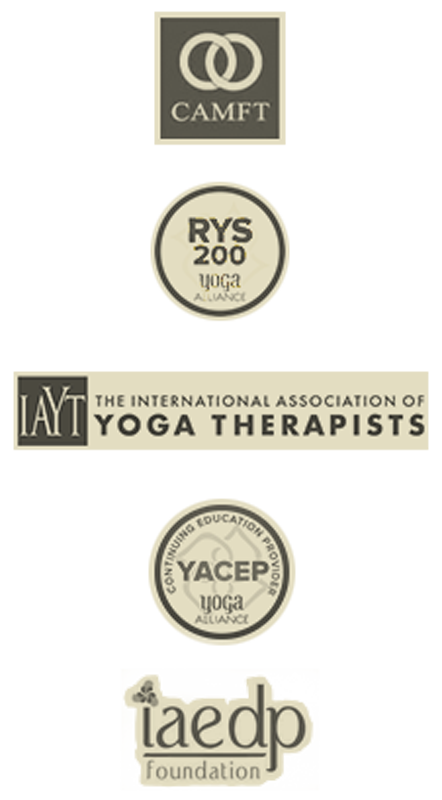EMDR Consultation and Certification
I am pleased to announce that I am now an EMDRIA consultant in training (CIT) for EMDR certification. I can provide EMDR consultation (up to 15 hours) for those working towards becoming certified in EMDR. I may also provide consultation for those doing the basic EMDR training, depending on the stipulations of the training organization. Please contact me for more information on pricing, scheduling, or forming a consultation group. Sessions can be in person, over the phone, or VoIP (Skype). Consultations can be done on an individual basis or in groups of four or more.
Counseling In Claremont
Whether you call it counseling, therapy, “going to a shrink,” or any variety thereof — seeking psychotherapy can be an overwhelming decision filled with numerous questions. Much of the vocabulary and terminology can be very daunting, and many potential clients are turned away by the complexities of it all. Read More…
Top 10 Things You Can Do To Control Anxiety… That Don’t Involve Medication

Anxiety is a common factor in most people’s lives. We all experience some form of anxiety, whether it be related to stress from a job, difficulties in a relationship, or stress of a life transition. However, “normal” anxiety can become a serious mental health condition, and impacts women 2x more than men. Anxiety disorders include generalized anxiety disorder (GAD); obsessive compulsive disorder (OCD), or panic disorders. It is important to seek professional help if you feel you are suffering from an anxiety disorder. Here are some links for more information on anxiety disorders: www.ocfoundation.org, www.adaa.org and www.abct.org.
Many of the clients that I see suffer from anxiety disorders or transitional life anxiety. Here are 10 tips to help manage and cope with feelings of fear, stress, and anxiety:
- Take a deep breath
“Deep diaphragmatic breathing triggers our relaxation response, switching from our fight-or-flight response of the sympathetic nervous system, to the relaxed, balanced response of our parasympathetic nervous system,” according to Marla Deibler, PsyD, a clinical psychologist, executive director of The Center for Emotional Health of Greater Philadelphia and Psych Central blogger.She suggested the following exercise, which you can repeat several times: Inhale slowly to a count of four, starting at your belly and then moving into your chest. Gently hold your breath for four counts. Then slowly exhale to four counts.
- Get active
One of the most important things one can do when coping with anxiety is to get regular cardiovascular exercise. For instance, a brisk 30- to 60-minute walk releases endorphins that lead to a reduction in anxiety. - Sleep well
Not getting enough sleep can trigger anxiety. If you’re having trouble sleeping, tonight, engage in a relaxing activity before bedtime, such as taking a warm bath, listening to soothing music or taking several deep breaths.And, if you’re like many people with anxiety whose brains start buzzing right before bed, jot down your worries earlier in the day for 10 to 15 minutes, or try a mental exercise like thinking of fruits with the same letter.
- Challenge an anxious thought
“We all have moments wherein we unintentionally increase or maintain our own worry by thinking unhelpful thoughts. These thoughts are often unrealistic, inaccurate, or, to some extent, unreasonable,” Deibler said.Thankfully, we can change these thoughts. The first step is to identify them. Consider how a specific thought affects your feelings and behaviors, Deibler said. Is it helpful or unhelpful?Unhelpful thoughts usually come in the form of “what ifs,” “all-or-nothing thinking,” or “catastrophizing,” Deibler said. She gave these examples: “What if I make a fool of myself?” “What if I fail this exam?” or “What if this airplane crashes?”
Then, she suggests challenging these thoughts by asking: “is this worry realistic? Is it likely to happen? If the worst possible outcomes, what would be so bad about that? What could I do about this if it did happen?” Then, reframe or correct the thought to make it more accurate, realistic or adaptive. For instance, “I would feel sad or embarrassed if that happened, but that is just a feeling, and I will get through it”.Make encouraging statements: opposite, accurate statements can help to put things into perspective. Deibler gave these examples: “Anxiety is just a feeling, like any other feeling.” and “This feels bad, but I can use some strategies to [cope with] it.”
- Stay connected to others: social support has been shown as essential as a way to help manage stress. Reach out for support from friends, loved ones, or a mental health practitioner.
- Avoid caffeine: caffeine can increase stress, so when suffering from anxiety, it is important to limit or eliminate it.
- Avoid mind-altering substances: anxiety sufferers may seek out drugs and alcohol to alleviate anxiety, but in the long term, these substances make anxiety worse.
- Do something you enjoy such as taking a walk, reading a book (fiction or a self-help anxiety book), taking a break, etc. It is important to schedule these activities into your day in order to achieve balance and reduce stress.
- Contact a therapist: It is useful to contact a mental health professional who can help you find the sources of anxiety and help you develop healthy coping tools.
- Accept your anxiety
When patients try to rid themselves completely of anxiety, or experience fear when anxiety arises, this tends to increase the negative experience and lead to panic. Instead, try using mindfulness (noticing on purpose without judgment) and imagining the anxiety pass by like a wave one is riding out in the ocean.
Original sources:
6 Tips to Navigate Marital Conflict
Conflict in a marriage can be hard to navigate, especially when we are surrounded with messages about happy every after and marital eternal bliss as the expectation once you say “I do”. But marriage, or any long-term relationship, conflict is inevitable. According to John Gottman, a lead researcher in marital relations, the success of a marriage is tied to a couple’s ability to manage conflict in a healthy way, not the absence of conflict. Gottman suggests some tips for couples to help them resolve marital conflict including:
- Physiological self-soothing: taking a time out during times of heated conflict.
- Softened Startup: Using I statements and avoiding blaming language.
- Repair and de-escalate: be willing to start over when in a calmer space and have a redo of the conversation. Apologize for mistakes or missteps
- Listen to your partner’s underlying feelings and dreams: often in conflict, our partners have a deeper need they are not communicating. Try to imagine what this may be and work towards comprise in order to meet one another’s needs.
- Accept influence: hard as it may be accept that your partner may have valid points and insights about you or ideas of how to improve the situation.
- Compromise: Find common ground between the two of you, even if it means letting of part of what you want.

